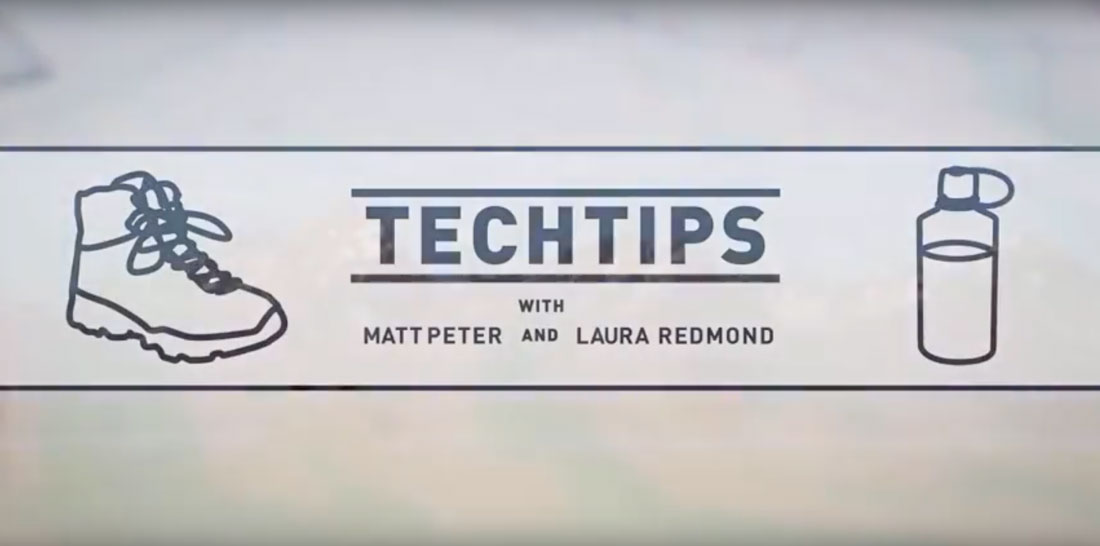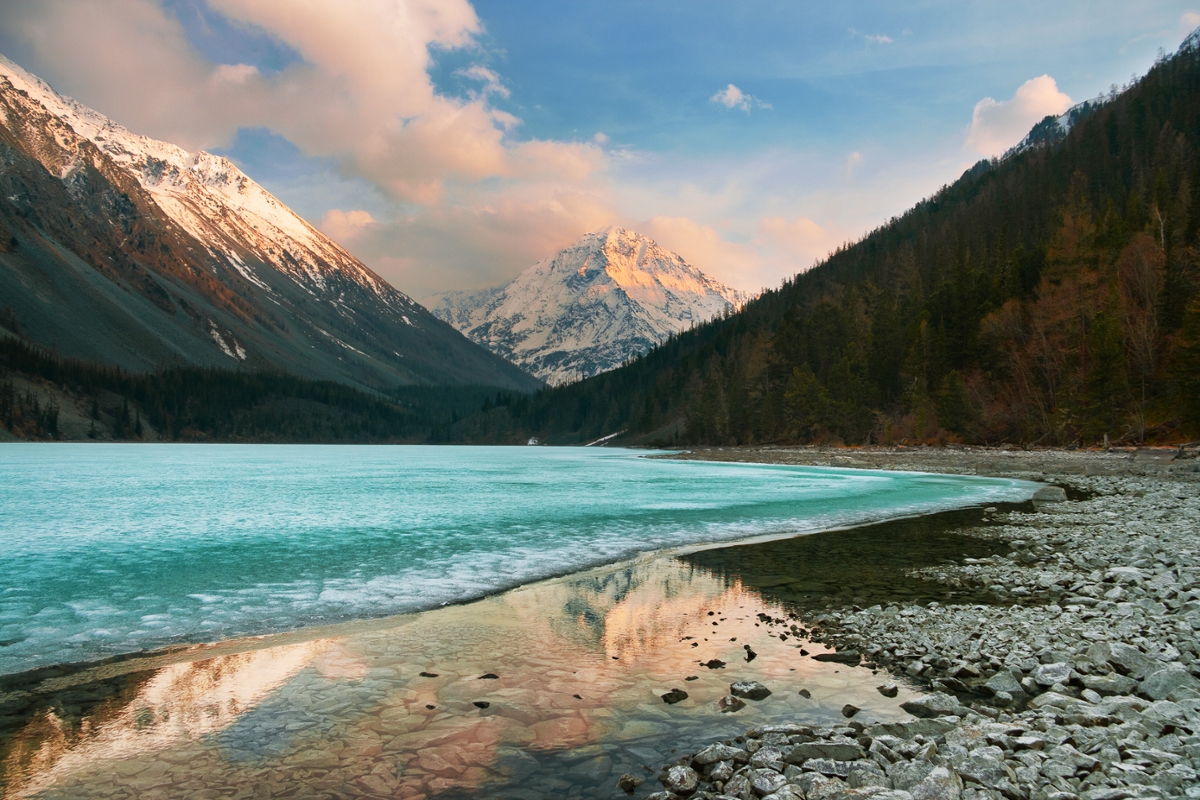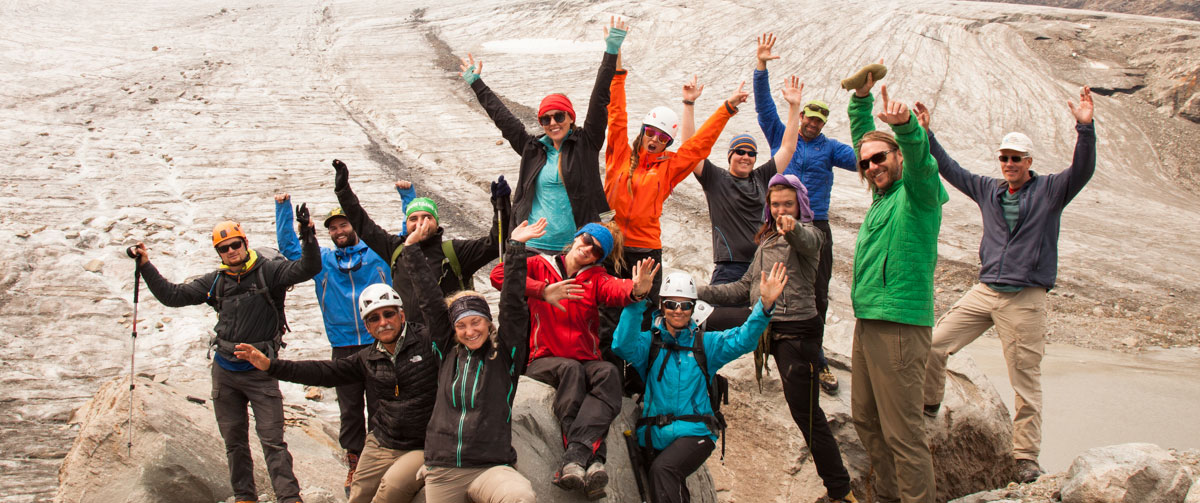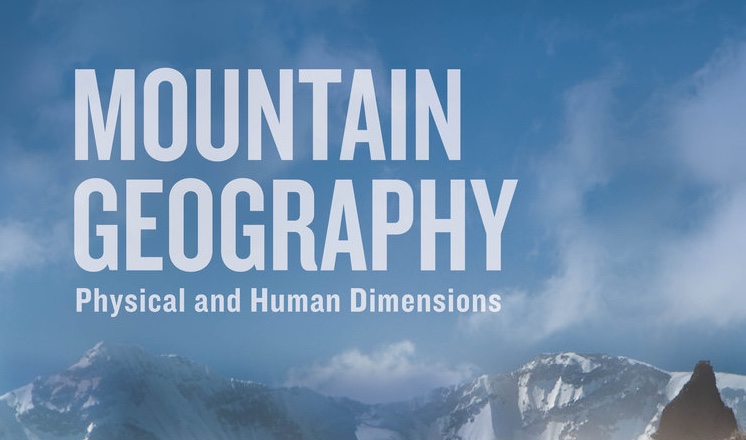
Mountains 101
Mountains 101 teaches a comprehensive overview of the mountain world and shares general tips and tricks to safely enjoy time in the high alpine environment.
Take online for free
Sign up for free on Coursera today or upgrade to get a certificate.
Take for credit
U of A students can sign up for INTD 280 The Mountain World (X credits) and access the course through eClass. Learn more about how to sign up.
About the Course
Mountains 101 is a 12-lesson Massive Open Online Course (MOOC) teaching a comprehensive overview of Mountain Studies. Mountains 101 will cover an interdisciplinary field of study focusing on the physical, biological, and human dimensions of mountain places in Alberta, Canada, and around the world.
We’ll be delivering your lessons from valley bottoms to mountaintops, from museums and labs, to alpine huts and other spectacular alpine sites, and we’ll do so with the help of a whole host of experts.
We have had a lot of assistance from several partners in preparing this course, especially from our national parks agency, Parks Canada, along with The Alpine Club of Canada and MEC.
Curriculum Alignment
Taking the course as an Alberta junior high or high school student? Mountains 101 content aligns with parts of the Alberta curriculum for Science 7, 8, 9, 10, and 20 Learn how U of A MOOCs align with Alberta's secondary curricula.
Topics Covered
This course will provide students with a broad and integrated overview of the mountain world.
- We'll study the geological origins of mountains, how they’re built-up and worn-down over time.
- We’ll learn about their importance for biodiversity and water cycles, globally and locally.
- We’ll explore their cultural significance to societies around the globe, and how that relationship has evolved over time.
- We’ll learn how mountains are used, how they’re protected, and how today they’re experiencing rapid change in a warming climate.
We'll also share general tips and tricks to safely enjoy time in the high alpine environment.
To this end, we've enlisted:
- ACMG/IFMGA Mountain Guide Matt Peter and
- M.Sc. graduate Laura Redmond
who will be providing a smart and useful "Tech Tip" at the end of every lesson -- from how to pick the best footwear for hiking, to making smart decisions in avalanche terrain.
Want to know more about what we'll be covering? Watch some Tech Tip teaser videos.
Learn more about Matt and Laura as well as the guest content experts you can expect to see during the course.
Course Format
This class consists of twelve 60-minute lessons, each with a series interactive lecture videos, a set of course notes and course glossary, and recommended readings and additional resources. Each lesson also includes a short summative quiz to test your understanding.
Students taking the course for credit at the University of Alberta will be required to take a midterm and final exam, as well.
Recommended background:
No background is required. All are welcome!
Suggested Readings:
In addition to course notes, and a full course glossary, each of the 12 lessons includes additional recommended readings and resources to further your learning.
Take the course for free & explore the world's mountains
Instructor
David Hik, PhD, Professor
Department of Biological Sciences - Faculty of Science, University of Alberta
David Hik is a Professor in the Department of Biological Sciences in the Faculty of Science. Dr. Hik's research interests are focused on the ecology and ecosystem dynamics of mountain and cold-region environments, determinants of social-ecological resilience, and the interface between science and policy. Dr. Hik has numerous publications and awards, including the Royal Canadian Geographical Society’s Gold Medal (2010) and Martin Bergmann Medal for Excellence in Arctic Leadership and Science (2013).
Instructor
Zac Robinson, PhD, Associate Professor
Faculty of Kinesiology, Sport, and Recreation, University of Alberta
Zac Robinson is a historian and an Associate Professor in the Faculty of Kinesiology, Sport, and Recreation. Dr. Robinson's research interest are focused on the cultural and social histories of the Canadian Rockies and Columbias. He is the editor of the recently published volume Conrad Kain: Letters from a Wandering Mountain Guide, 1906-1933 (University of Alberta Press), and presently serves as the Vice President for Mountain Culture of The Alpine Club of Canada.
TechTip Presenters
Matt Peter, ACMG/IFMGA Mountain Guide
Matt Peter is the owner and operator of Canada Mountain Guides. He has been guiding for 25 years and has explored many facets of the profession. He is certified through the Association of Canadian Mountain Guides and the International Federation of Mountain Guides Associations. He is very passionate about exploring the mountains and sharing those explorations with guests.
Laura Redmond, MSc Student,
Biological Sciences - Faculty of Science Laura Redmond graduated with an M.Sc. (2017) from the Department of Biological Sciences in the Faculty of Science. Her research interests focus on alpine limnology and ecological adaptations in response to a changing climate. Redmond is a recent recipient of an NSERC Canadian Graduate Scholarship Master's (CGS-M), and is currently LakeWatch Co-ordinator with the Alberta Lake Management Society.
Special Guests
Mountains 101 will feature guest appearances by:
- Sarah Adamowicz, Professor, University of Guelph
- Philip Ainslie, Professor, University of British Columbia, Okanagan
- Isabel Barrio, Research Associate, University of Iceland
- Cynthia Burlingham, Director, Curatorial Affairs, Hammer Museum
- Terry Callaghan, Professor, Tomsk State University & Sheffield University
- John Clague, Professor, Simon Fraser University
- Joanna Croston, Program Director, Banff Mountain Book & Film Festival, The Banff Centre
- Mike Demuth, Glaciology/Cold Regions Research Scientist, Geological Survey of Canada
- Jeff Goodrich, Senior Avalanche Officer for Mt Revelstoke and Glacier National Parks, Parks Canada
- Greg Henry, Professor, University of British Columbia
- Karsten Heuer, Bison Reintroduction Project Manager for Banff National Park, Parks Canada
- Eric Higgs, Professor, University of Victoria
- Andrew Hunter, Fredrik S. Eaton Curator, Canadian Art, Art Gallery of Ontario
- Todd Keith, Land Use Specialist, Yoho National Park, Parks Canada
- Jessamyn Manson, Professor, University of Virginia
- Steve Martin, Guest Curator, "The Idea of North: The Paintings of Lawren Harris," Art Gallery of Ontario and the Hammer Museum
- Brian Menounos, Professor, University of Northern British Columbia
- Bill Milsom, Professor, University of British Columbia
- Derek Petersen, Ecological Integrity Monitoring Coordinator for Banff, Yoho, and Kootenay National Parks, Parks Canada
- Liza Piper, Professor, University of Alberta
- Martin Price , Professor and Director, Centre for Mountain Studies, Perth College, University of the Highlands and Islands; Chairholder, UNESCO Chair in Sustainable Mountain Development
- Martin Sharp, Professor, University of Alberta
- Robert Sissons, Vegetation and Restoration Ecologist, Waterton Lakes National Park, Parks Canada
- Stephen Slemon, Professor, University of Alberta
- Dave Smith, Fire and Vegetation Specialist, Jasper National Park, Parks Canada
- Bill Snow, Consultation Manager, Stoney Nakoda First Nation
- Felix Sperling, Professor, University of Alberta
- Craig Steinback, Professor, University of Alberta
- Mark Taylor, Aquatic Ecologist, Banff National Park, Parks Canada
- Ifan Thomas, Superintendent, Waterton Lakes National Park, Parks Canada
- Pat Thomsen, Executive Director. Pacific and Mountain National Parks, Parks Canada
- Martyn Unsworth, Professor, University of Alberta
- John Waldron, Professor, University of Alberta
Syllabus
Module 1 - Why Mountains Matter
In this introductory lesson, students learn why mountain environments are relevant to people all around the globe. We’ll also define just what a “mountain” is in order to show why it is necessary to think about mountains from various perspectives.
TechTip: Your feet are your vehicle
Module 2 - Origins
We discuss why mountains are located where they are. How did they get there? We’ll explore the physical origins of mountains, theories of mountain building, and how our changing ideas about mountains and their genesis have shaped our engagement with them.
TechTip: Dress for success
Module 3 - Dress for success
Mountains influence climate and weather at both global and local scales. We will examine how elevation affects atmospheric processes, and discuss an ecological manifestation of mountain climate: the alpine tree line.
TechTip: What goes in your pack?
Module 4 - Bodies at Altitude
What are the effects of high-altitude environments on humans? This lesson explores some of the physiological responses that allow humans to visit higher altitudes, as well as the unique genetic adaptations that permit long-time exposure to the world’s high places.
TechTip: Stay found – preparation
Module 5 - Water Towers
This lesson focuses on mountain hydrology. We will discuss the ways that water moves through the mountain landscape, how water shapes and changes mountain landscapes, and we'll introduce some hazards associated with water, such as glacial lake outburst floods.
TechTip: Stay found – in the field
Module 6 - Glaciers
This lesson focuses exclusively on glaciers, their physical composition and processes, how they form and move, and how they modify the landscape. We’ll also examine how our changing understandings of glaciers have shaped the ways people have engaged with mountain landscapes over the past few centuries.
TechTip: Stay safe – from falling
Module 7 - Imagination
In this lesson, we examine some of the ways people have imagined mountains throughout time, and try to place those ideas and attitudes in their respective cultural contexts. Appreciating the diversity of views – their reception in oral traditions, art, literature, architecture, and other cultural forms – gives us some context for the more dominant ways we think about and celebrate mountains today.
TechTip: Stay safe – winter challenges
Module 8 - Hazards
Mountain hazards are the focus of this lesson, specifically snow avalanches, landslides, and volcanoes. We will examine the physical processes that lead to instability in mountain landscapes and consider how risks associated with hazards can be managed.
TechTip: Stay safe – avalanche safety (know before you go)
Module 9 - Mountain Biodiversity and Adaptations of Plants
In this lesson, we discuss the ecological and evolutionary processes that account for the remarkable biodiversity of species living in mountain environments. Then, we explore some of the unique adaptations that plants have for coping with extreme conditions, including cold, intense solar radiation, and short growing seasons.
TechTip: Go farther – camping
Module 10 - Animal Adaptations
Animals living in mountains have evolved morphological, behavioural, and physiological adaptations to survive under extreme conditions. In this lesson, we will focus on how several species deal with the cold and conclude with a peek at the adaptations of fish living in mountain lakes.
TechTip: Go farther – cooking
Module 11 - Use and Preservation
How are mountains used? How are they preserved? In this lesson, we examine the often conflicting demands of using mountains, and preserving and managing the integrity of mountain environments, cultures and economies.
TechTip: Go softly – mountain ethics
Module 12 - Future Mountains
Finally, we look forward and consider some possible future scenarios for mountains. How is our changing climate affecting these places? What are the indicators of change? What lessons can we learn from the past and present to inform decisions for tomorrow?







